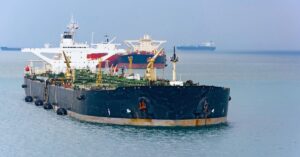
LNG Tanker Grounds In Mukran, Sparking Criticism About Germany’s New LNG Infrastructure
May 24, 2025
Stornoway Port Welcomes Its Largest Ever Cruise Ship, The Queen Anne
May 24, 2025

The Panama Maritime Authority (PMA) has vowed to crack down on suspicious tankers and has laid down new regulations for ship-to-ship oil transfers for vessels in its registry.
This development comes amidst international pressure to stop the vessels trying to hide transactions of Russian and Iranian oil in its waters.
This regulation reinforces the role of Panama as a flag state committed to maritime safety, transparency and prevention of fraudulent use of its registry, in compliance with IMO regulations and MARPOL Convention, stated DGMM Acting Director, Engineer Rina Berrocal.
She added that it is not only about the reputation of the registry but also ensuring that their ships are not used for conducting illicit activities.
To trace the offshore STS transfers of hydrocarbons, PMA has stated that Panama-flagged ships with a gross tonnage of 150 or above have to notify the flag state 48 hours in advance of any planned STS operation and provide detailed information on the same.
This rule is meant to trace the ships being used to evade sanctions and transport undeclared crude oil or evade environmental safety rules, practices associated with the shadow fleet.
According to the new rule, ships have to give details of the vessel involved in the transfer, including its IMO number and flag and must also prove where and how the transfer will be done and confirm that it has a plan in accordance with MARPOL.
In 2024, PMA took steps to clean its registry and made the process of removing the violators simple.
It is the largest registry by number of vessels, and also has the greatest number of vessels involved in the Russian and Iranian oil trade.
Panama is also working with other registries to identify ships attempting to flag hop in order to prevent their detection.
References: Reuters
Source: Maritime Shipping News


